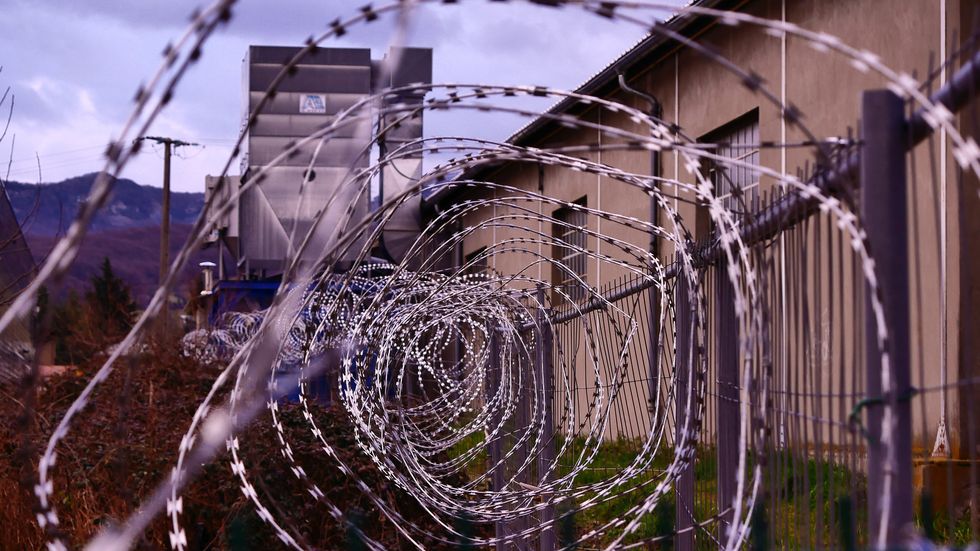It's no secret that the United States' criminal justice system is a mess. Mass incarceration continues to fester throughout the system as a result of harsh sentencing laws that in many cases are especially punitive towards minorities, high rates of recidivism due to a lack of resources to help former inmates transition back into society, and a lack of legislation fix the flaws in the system to name just a few reasons.
But now, as the current 115th Congress enters its final few days of legislative work in Washington, there is an opportunity to make meaningful reforms to the American criminal justice system: the Formerly Incarcerated Reenter Society Transformed Safely Transitioning Every Person (or FIRST STEP) Act. In its current form, the bill would allocate funding to increase the number of vocational training and rehabilitation programs in federal prisons as well as make it easier for inmates in federal prisons to earn more "good time" credits that would qualify them for early release. If passed, it would have immediate effects on the status of thousands of inmates' prison sentences.
The bill is also remarkable because it has a great deal of bipartisan support; numerous Democrats and Republicans are listed as sponsors, and the House of Representatives passed their form of the bill last May by a 360-59 margin. In an even more surprising turn of events, President Donald Trump announced earlier in the fall that he would approve the bill - an unusual move for somebody who ran on a tough-on-crime platform in the 2016 election - if it made it to his desk (a result that would require the bill's Senate form to pass in the chamber and be reconciled with the House's version). Trump's stance on the bill puts him on the same side as a number of organizations favoring criminal justice reform such as the American Civil Liberties Union.
Evidently, the bill has a wide appeal, but there are forces that could still stop this much-needed criminal justice legislation in the Senate. One powerful threat to the bill's passage is the possibility that it will not even reach the Senate floor for a vote as the chamber scrambles to address other legislation before Congress adjourns for the year. The FIRST STEP Act simply does not hold a high priority for some Senators.
Additionally, some Senate Republicans such as Sen. Tom Cotton of Arkansas have voiced heated opposition to the bill on the grounds that it treated some inmates too leniently by allowing them to be released early (a claim Senate Republicans who sponsored the bill reject, citing restrictions that allow only those who committed lower-level offenses to partake in sentence-reducing programs). On the other hand, some progressives have been hesitant to support the bill because they argue that it does not go far enough in addressing sentencing reform and that the sentence-reducing programs outlined in the bill would not accessible to enough inmates.
It is true that the bill will directly affect only a small portion of the federal prison population (which in itself makes up only a fraction of the number of incarcerated people in the United States, the rest imprisoned mostly in state or county facilities). It is also true that the bill mainly targets the symptoms of mass incarceration (such as inmate recidivism and overcrowding in prisons) and not the root causes (excessively harsh sentencing laws for low-level offenders); in fact, only the Senate version of the bill mentions anything about loosening of minimum sentencing laws, as the House version does not. Yet, despite these shortcomings, advocates for criminal justice reform should still support the FIRST STEP Act because it still has the potential to help thousands of inmates currently in federal prisons.
If passed, the bill would help inmates convicted of minor offenses achieve early release from prison by increasing the number of credits counting towards prison sentence reduction they could earn while in prison; it would also assist them with the transition back into society through job-training programs, which the bill incentivizes inmates to use since the programs count towards early-release credits and are shown to decrease recidivism rates by enabling former inmates to gain at least some stability once they are released. Admittedly, these reforms are fairly mild when compared to the enormity of flaws within America's justice system, but it is better to seize the opportunity to help at least a small fraction of America's incarcerated population re-achieve independence than to help none at all. Great reforms do not take place overnight; most have to start small.
It should also be noted that FIRST STEP does not preclude the possibility of more expansive criminal justice reform, but rather (as its name implies) lays the groundwork for Congress to pursue more solutions in the future. A bipartisan legislative victory in criminal justice reform could incentivize both Congress and the President focus more attention on the issue in a time when partisan gridlock is dominant in Washington.
Given both the immediate opportunity to improve the lives of many current inmates and the chance to start a long-term legislative push for criminal justice reform, the FIRST STEP act needs to be prioritized as it makes its journey through the Senate. The bill is small but could have lasting consequences if those who wish to change the United States' criminal justice system for the better push to make it a national priority.

















